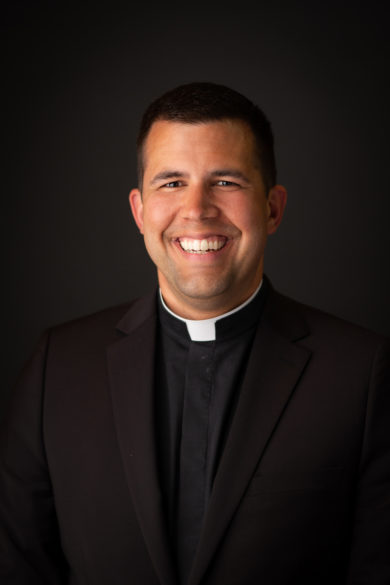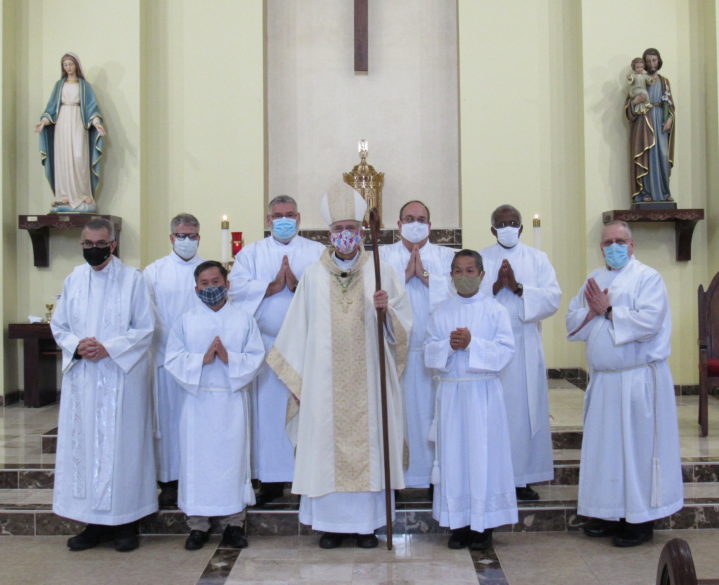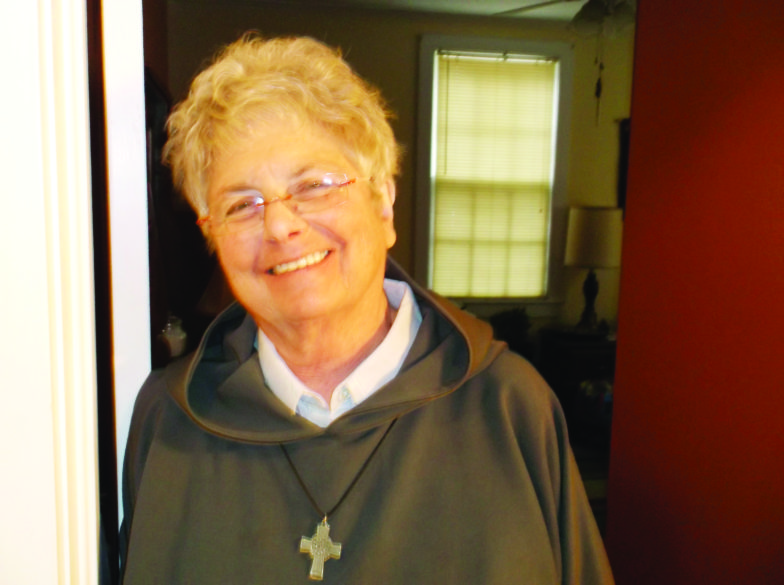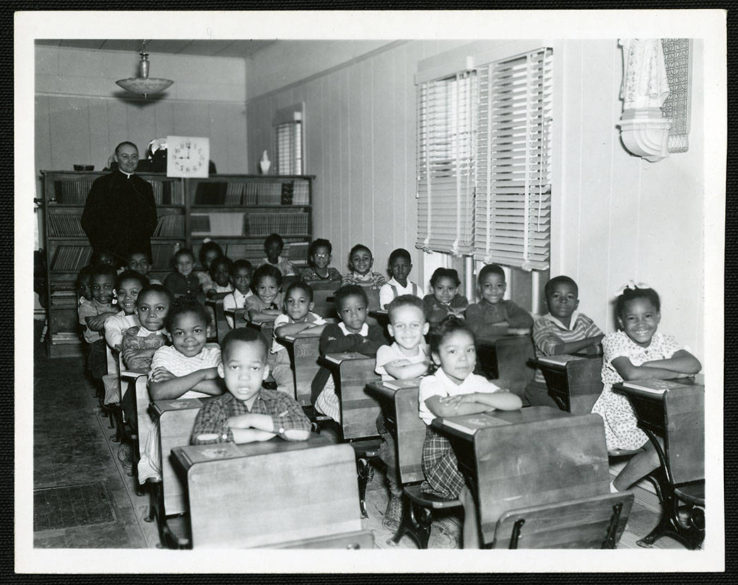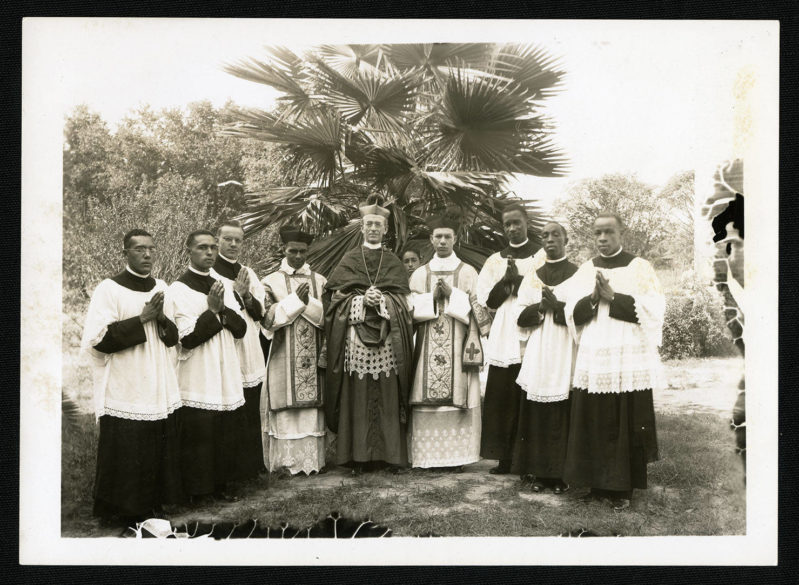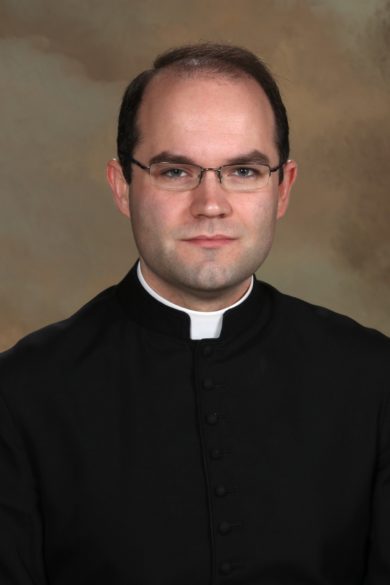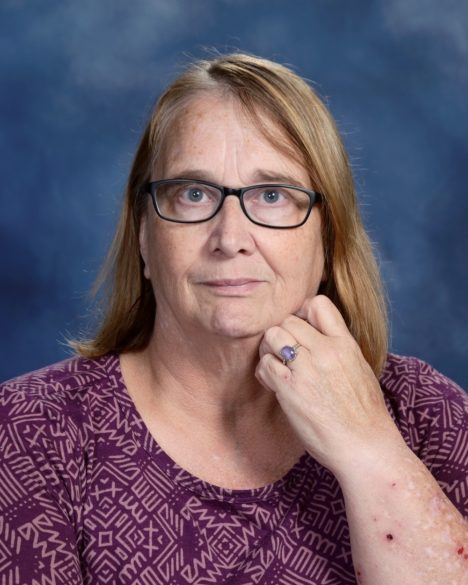By Bishop Joseph R. Kopacz, D.D.
In 1990 Black Catholic History month began to be celebrated in November in various parts of the United States. At the 30 year mark our Catholic people have grown to better understand that the Catholic Church in the United States and Black Catholic History are deeply intertwined.
Over the past 40 years the Bishops of the United States have produced three documents that resurrect the gift of the African American Catholic experience, and the unrelenting struggle to overcome the legacy of slavery and racism that afflict our nation and Church. Brothers and Sisters to Us 1979 — What we have Seen and Heard 1984 — Open Wide Our Hearts, The Enduring Call to Love 2018. In their 1979 document the Black Catholic bishops embraced the words of Pope Paul VI when he spoke at the Eucharistic Conference in Kampala, Uganda in 1969 – ”You must now be missionaries to yourselves, and you must give the gift of Blackness to the whole Church.”

“Do you know the gift?” is the title of the feature article by Richard Lane in the current edition of the Catholic TV Monthly. It provides, in part, a fascinating glimpse of the African presence in the church from the beginning. Three of our popes were of African origin, and Pope Melchiades held the Keys of Peter when Constantine issued the Edict of Milan in 313 ending the nearly three centuries of brutal martyrdom. This successor of Peter needs to be front and center when we recall this watershed moment in church history. Do we know the gift?
Remember that St. Monica and her son, St. Augustine hailed from Algeria, and remain models of parental devotion and intellectual prowess. Do we know the gift?
The Black bishops in their 1984 document portray a perspective of history that is easily overlooked. “Just as the church in our history was planted by the efforts of the Spaniards, the French and the English, so did she take root among Native Americans, Black slaves and the various racial mixtures of them all. Blacks whether Spanish speaking, French speaking or English speaking, built the churches, tilled church lands, and labored with those who labored in spreading the Gospel. From the earliest period of church history in our land, we have been the hands and arms that helped build the church from Baltimore to Bradstown, from New Orleans to Los Angeles, from Saint Augustine to Saint Louis. Too often neglected and too much betrayed, our faith was witnessed by Black voices and Black tongues — such as Pierre Toussaint, Elizabeth Lange, Henriette Delille and Augustus Tolton.”
The Bishops also point out in “What We Have Seen and Heard” that Catholic dioceses and religious communities across the country for years have committed selected personnel and substantial funds to relieve oppression and to correct injustices and have striven to bring the Gospel to the diverse racial groups in our land. The church has sought to aid the poor and downtrodden, who for the most part are also the victims of racial oppression. But this relationship has been and remains two-sided and reciprocal; for the initiative of racial minorities, clinging to their Catholic faith, has helped the church to grow, adapt, and become truly Catholic and remarkably diverse. Today in our own land the face of Catholicism is the face of all humanity – a face of many colors, a countenance of many cultural forms.”
All of this resonates with the history of the Catholic faith in Mississippi, and one of our own, Sister Thea Bowman, FSPA, embodies our proud tradition. In February 2018, the Catholic Diocese of Jackson announced it has begun researching the life, writings and works of Sister Thea Bowman, FSPA, as a preliminary step in opening an official cause for sainthood.
Sister Thea’s story is well known and her amazing journey of faith from a star struck child in Holy Child School in Canton, Mississippi into the heart of the Catholic Church as a religious sister was pure grace. Her prophetic spirit, brilliant mind and boundless stamina inspired many, and became a beacon for the church to embrace more authentically the essence of Catholicity. Her suffering over the final years of her life from an incurable cancer united her to the Cross of the Lord Jesus, and served to deepen her love and her graceful spirit. Indeed, she lived until she died.
The 30th anniversary of her death was to have been celebrated with much love and fanfare, but the pandemic derailed the festivities. Nevertheless, Sister Thea was a gift to the church from the moment she set foot in Holy Child School right up to the moment when she addressed the United States Catholic Conference at Seton Hall toward the end of her life. She remains a gift in death. From a star struck child to a shooting star, her cause will be a beacon of light and hope for the church and for our nation.
Open Wide our Hearts, the Enduring Call to Love 2018 will direct the efforts of the Diocese of Jackson in the months ahead in our commitment to be faithful as disciples of the Lord Jesus. The Bishops in their 1984 document prophetically address the work of justice for which every generation must sacrifice. “The cause of justice and social concern are an essential part of evangelization. Our own history has taught us that preaching to the poor and to those who suffer injustice without concern for their plight and the systematic cause of their plight is to trivialize the Gospel and mock the cross. To preach to the powerful without denouncing oppression is to promise Easter without Calvary, forgiveness without conversion, and healing without cleansing the wound.”
May the words of the Prophet Micah burn brightly. “Do Justice, love goodness, and walk humbly with God.”

